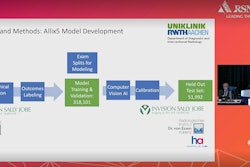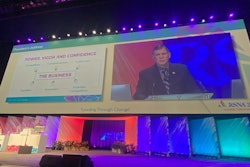Taking a feminist approach can help address gender inequalities in women’s access to cancer prevention, detection, and care, according to a commission report published September 26 in The Lancet.
The commission, led by researchers from nine different countries on four continents, analyzed in its report how women around the world experience cancer, as well as provided recommendations to policymakers, governments, civil society, and health and social care systems.
“By exposing these realities and the asymmetries of power they reveal, we can envision a path forward that transforms the ways that women interact with the cancer health system, whether as patients, as care providers, or both,” the commission wrote. Cancer is a leading cause of premature mortality (under age 70) globally, but there is no one-size-fits-all approach to addressing ways to prevent, detect, and treat these cancers. Cancer ranks in the top three causes of premature death in women in almost every country worldwide.
The Lancet Commission was created to investigate the connection of women, power, and cancer. The commission published its recommendations alongside a study also published September 26 in The Lancet Global Health, which sought to estimate premature deaths and differentiate these as preventable deaths or treatable cases in 185 countries worldwide. The researchers, led by Clara Frick from International Agency for Research on Cancer in Lyon, France, evaluated data from the agency’s Globocan 2020 database. This included 5.3 million adults who died from cancer in 2020 under 70 years of age. Of these cancer deaths, 2.3 million consisted of women.
The study also suggested that 1.5 million premature cancer deaths in women could be prevented each year through the elimination of exposures to key risk factors or via early detection and diagnosis. It also suggested that another 800,000 lives could be saved each year if all women had access to optimal cancer care.
The researchers also reported that about 1.3 million women of all ages died in 2020 due to four of the major risk factors for cancer: tobacco, alcohol, obesity, and infections.
“The burden of cancer in women caused by these four risk factors is widely under-recognized,” the study authors wrote. “For example, a study from 2019 found only 19% of women attending breast cancer screening in the U.K. were aware that alcohol is a major risk factor for breast cancer.”
The commission, meanwhile, in its key findings reported that in many countries, women are more likely than men to lack the knowledge and the power to make informed cancer-related healthcare decisions. It also wrote that women are more likely than men to risk financial catastrophe due to cancer and that patriarchy dominates cancer care, research, and policy-making.
The commission called for more feminist approaches to be taken to address this challenge. These include the following points, among others:
- Make sure that data on sex, gender, and other sociodemographic factors are routinely collected in cancer health statistics, publicly reported, and updated.
- Develop, strengthen, and enforce laws and policies that reduce exposure to known cancer risks for girls and women.
- Research, monitor, and act on emerging cancer risks that disproportionately affect girls and women, including occupational and environmental factors.
- Design and implement gender and intersectional transformative strategies to increase equitable access to early detection and diagnosis of cancer.
- Co-create accessible and responsive health systems that provide respectful, quality cancer care for girls and women.
- Ensure equitable access to cancer research resources, leadership, and funding opportunities for women.
The commission wrote that such approaches will also challenge researchers, policymakers, and care providers to reflect on their positions within gender orders and hierarchies.
“We invite all to apply reflexivity and consider one’s positionality in the gender and social hierarchies throughout the research and healthcare processes and acknowledge that scientific endeavors, regardless of the best intentions, can never maintain a pure objective stance,” it wrote. “We believe that this commission will help to advance an equity agenda for cancer for the benefit of all.”
The commission’s full report can be read here, and the accompanying study can be found here.



















